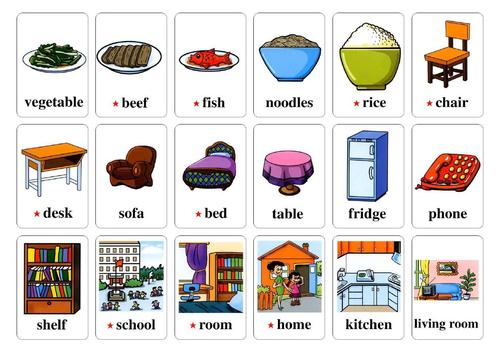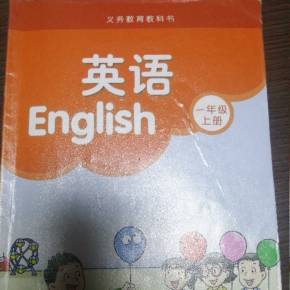从风雨中寻找快乐,在挫折中保持坚韧。下面是课件范文网小编为您推荐高二英语教学设计:《Introduction, Reading and Vocabulary》。

Teaching Aims:
1. Knowledge and Skill
a. Be able to master the key words and expressions, read the text fluently and get to know something about the Internet and telecommunications.
b. Master the basic usages of the definite article and zero article.
c. Train the students listening, speaking, writing and reading ability.
2.Emotion and Values
a. To raise students' interests in Internet and form the attitude towards the usage of the Internet
b. To teach the students to use the resources in a proper way and avoid indulging in electronic games.
Difficulties and Importance:
a. To make the students understand and grasp the vocabulary and knowledge related to Internet and telecommunications.
b. To enable the students to know the usage of definite article and zero article
c. Enable the Ss to recognize the usage of compound nouns.
Teaching Method:
a. Task-based methodology
b. Communicative Approach
Teaching Procedures:Period 4Teaching Content: Grammar 2
Function & Writing
Step 1 Presentation
a. Look at the words. We usually use the definite article with them. Why do you think this is necessary?
The internet the world Wide Web the head teacher the universe the capital
The world the sun the official language the moon the president
b. Look at these categories below. The definite and indefinite articles are not usually used with them. Write two or three examples in each category.
Continents: ____________________________
Countries and cities:_____________________________
Plural and uncountable nouns in general statements:__________________________________
Step 2 Practice
Fill in a proper article where necessary.
1. ______boy is waiting for you out of the school gate.
2. There is ______famous university in this small city.
3. Everyone has ______mouth, ______nose, two eyes and two ears.
4. There is only ____little ink in the bottle.
5. Please show me ______photo of the boy.
6. Which is ______biggest, _____sun, ______earth, ______or _____moon.
7. I get up at about 6 o'clock in ______morning.
8. He can play ______piano.
9. In my hometown, it is not cold in _____winter.
10. I have never been to _____Japan.
Suggested answers:
1. A 2. a 3. a; a 4.a 5. the 6. the; the; the; the 7. the 8. the. 9./ 10./
Step 3. Talking about percentage and numbers
Read the following sentences using the knowledge we have learned in last module.
1. About 80percent of web traffic is in English.
2. But this percentage is going down.
3. In five years, the number of Internet users rose from 600,000 to 40 million.
4. Two percent of the total population of China have access to the Internet, compared with 45 percent in the USA and 15 percent in Japan.
5. In China, the number of Internet users was 55 million in 2002, which rose to 125 million in 2003.
6. The average time the Chinese people spend online is 17 hours per week.
Step 4 Guided writing.
Read the short essay on page 56. then write a paragraph giving the opposite view. Try to use some of these words and expressions.
I don't agree with this opinion...
In my opinion...
It's very important to...
It would be very difficult to...
While doing this, refer to the following:
The importance of having a teacher.
The importance of working together as a class
The danger of spending too much time looking at a computerHomework:1. Preview the content of cultural corner.
2. Finish the exercise 8,9,10.
Addition resources:
冠词的用法
定冠词的用法
1.用在表示方向,方位的名词前
the east 东方;the west 西方;the right 右边;the left 左边
注意:方位词成对使用构成平行结构时,不用定冠词。
The river is two thousand miles long from east to west.
2.用在序数词前
定冠词用在序数词前,也用在表示序列的next, last 等前,还有表示"同一"或"唯一"的词前。如:
He is the only person who knows the secret.他是唯一知道这个秘密的人。
This is the very book I want. 这正是我要的书。(用very 表示强调)
注意:序数词表示"又一"时,前面用不定冠词 a/an。
He bought a second pair of shoes. 他又买了一双鞋。
3.用在乐器名词前,表示演奏
She can play the piano/violin/guitar.
4.用在江河,海洋,湖泊,群岛,山脉的名称前
the Yangtze River 长江; the West Lake 西湖;the Pacific 太平洋;the Rocky
Mountains落基山脉
5.用在普通名词和另外一些词构成的专有名词前
the Great Wall 长城;the United Nations 联合国;the New York Times 《纽约时报》
6.用在某些形容词前表示一类人或物或某种抽象概念。
The old 老年人;the poor 穷人;the beautiful 美的东西
注意:表示人的时候做主语,应看成复数意义;当表示物的时候应看成不可数意义。
7.用在姓氏的复数形式前,表示全家人,夫妇二人。
The Greens will move to the country.格林一家要搬到乡下去。
8.用在表示计算单位的名词前,含有"每一"的意思。
John is paid by the hour. 吉母的工资按小时付。
9.用在前面已提到的人的身体部位或衣着的名词前。
这种用法是先把整个对象说出来,然后再说到那个对象身体的局部或衣着。
动词(hit,pull,pat,strike,catch,hold,take,lead)+sb介词(in,on,by,across)+身体部位或衣着
She touched him on the shoulder. 她碰了他的肩。
注意:She patted the boy on his head. (误,本结构中身体部位或衣着前不用one's)
She patted the boy on the head. (正)
10.用在逢十的复数数词前,表示年代
The war broke out in the forties. 那场战争发生在40年代。
11.用在表示自然现象的名词前
the rain; the wind; the fog; the snow; the air
注意:①这类名词有形容词修饰时,可用不定冠词,表示"一场,一阵,一种"。
There was a heavy rain last night. 昨晚下了一场大雨。
②这类名词表示一般物质时,不用冠词。
Man can not live without air. 没有空气人无法生存。
12.用在某些习惯用语中
in the morning; in the evening; in the field ; in the country; in
the sun; in the distance; on the right; by the way; in the daytime;
go to the concert; at the beginning ; all the year round;等等。零冠词1. 指球类运动前, 以及在和介词by连用的交通工具与通讯方式前不用冠词. He seldom plays football on Sunday morning.
They came to Shanghai by ship (water, plane, air, train).
We informed him by telegram that we would arrive early in the morning.
注意:如果交通工具名词或通讯方式名词用了复数形式或前面有了
修饰语,就不能使用介词by,而要用in, on.例如:
We can go there on bikes.
Instead of writing to her mother, she likes talking to her on the telephone.
2.在 go to之后加地点名词,表示去从事某项活动,不用冠词;和介
词in连用,表示在从事某项活动,也不用冠词.
go to school / in school
go to hospital / in hospital
go to class / in class
go to bed / in bed
注意:在以上词组中如果使用冠词,则表示到某个地点去或在某
个地点.例如:
I'm going to the hospital to tell Dr. Li something important.
---Where is your father?
---He is in the school.
3.在三餐饭前或在四个季节前不加冠词.
Sometimes, she has lunch at school.
When autumn comes, leaves turn yellow.
注意:如果在三餐饭、四个季节的前面或后面有修饰语,则应加
冠词.例如:
In the autumn of 1949, our hometown was liberated.
In a cold winter, he left his hometown for Shanghai.
We had a good supper at her home.
4.作表语,同位语,宾语补足语或主语补足语的职务头衔名词前不
加冠词.例如:
They elected Bush President of the USA.
Jack, head of our workshop, didn't agree with us.
Who is chairman of the meeting?
5.在表示地名、人名、抽象名词和物质名词前不加冠词;在称呼
前也不加冠词.例如:
London, Shakespear, importance, sand
Hi, little friend!
Good morning, boys and girls!
但以下情况要加冠词.
It's a pleasure.(指一件令人快乐的事情)
The water in this well is very dirty. (特指)
Our journey by camel was quite an experience. (转义)
6.在节假日前不加冠词.例如:
Christmas Day, Women's Day
注意:在 "春节"和 "中秋节"之前要加the. 例如:
the Spring Festival, the Mid-autumn Day
7.在一些固定词组或固定句型中不用冠词.例如:
out of question (不成问题)
in time (按时)
in turn (轮流)
at midnight / at daybreak /at dawn/at sunrise
Child as he is, he is very brave.
(虽然他是个孩子, 但是他很勇敢.)
It is time that we started out.
(我们现在该出发了.)



